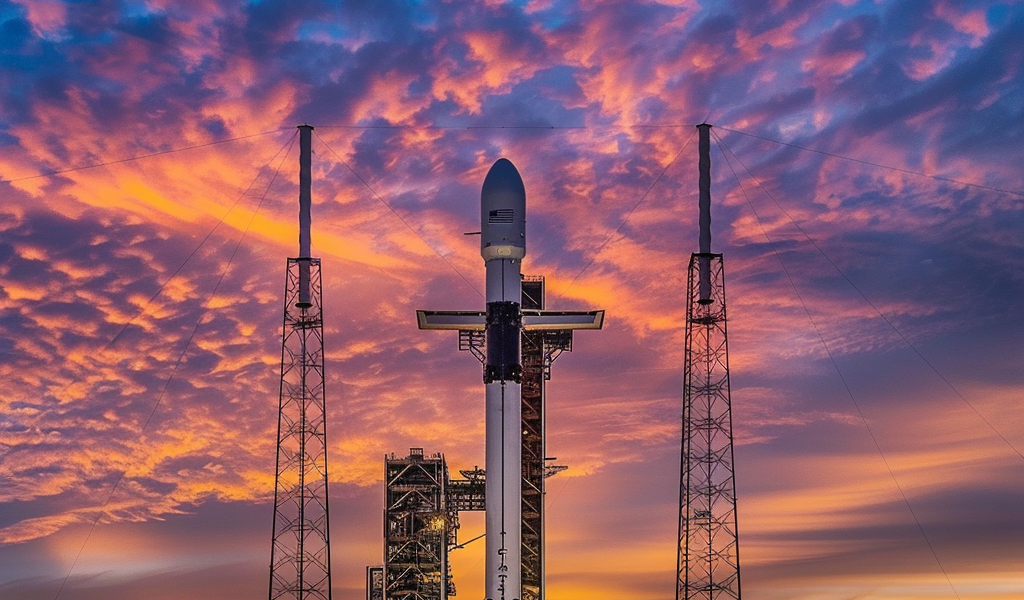SpaceX’s ambitious plans for a doubleheader launch weekend faced a setback when the countdown for the Falcon 9 rocket’s launch was halted due to a helium issue. The Falcon 9 was scheduled to lift off from Cape Canaveral Space Force Station as part of the Starlink 6-77 mission, aiming to deploy 23 satellites designed to enhance global internet coverage.
The launch was initially targeted for 4:57 p.m. EST on Sunday, November 3, but just moments before liftoff, SpaceX’s team announced a scrub of the mission. This scrub marks a significant moment in what was set to be a record-breaking weekend for the Space Coast, as it would have contributed to the 75th and 76th orbital rocket launches in a single calendar year.
Following the scrub, SpaceX officials confirmed that both the vehicle and payload were healthy, but the helium issue necessitated a pause. This rocket launch was intended to follow a second mission planned for Monday night, which involves a Dragon capsule resupply mission to the International Space Station (ISS).
The Dragon capsule launch is scheduled for 9:29 p.m. on Monday from NASA’s Kennedy Space Center, taking place just hours after the Falcon 9’s backup launch opportunity, which has been set for 4:31 p.m. on the same day. If the Falcon 9 successfully launches, it will take off just five hours before the resupply mission, showcasing SpaceX’s capability to manage multiple launches in a short timeframe.
SpaceX has a history of prioritizing NASA missions, and this instance was no different. Tim Dunn, the launch director with NASA’s Launch Services Program, previously mentioned that NASA often requests SpaceX to adjust the timing of their Starlink launches. This adjustment allows for a review period to analyze data from previous launches to identify any potential anomalies that could affect upcoming missions.
As the countdown was halted, SpaceX’s launch team communicated the situation through their live webcast. The countdown was paused at 2 minutes and 36 seconds before liftoff, a critical moment that showcases the precision and safety protocols that SpaceX adheres to during its launch operations.
The Falcon 9 rocket is known for its reliability and has become a workhorse for SpaceX, frequently deploying batches of Starlink satellites to bolster internet coverage across the globe. The Starlink project aims to provide high-speed internet access to underserved areas, and the upcoming launches are crucial to expanding this service.
As the situation develops, SpaceX is expected to provide updates regarding the new launch time for the Starlink 6-77 mission. The space community is keenly watching, as this weekend’s launches could set new records in the realm of space exploration and satellite deployment.
With the Falcon 9’s backup launch opportunity on the horizon, anticipation builds for what could be a critical step forward in SpaceX’s ongoing efforts to enhance global connectivity through its innovative satellite network.
In summary, while the initial launch attempt faced an unexpected delay, the resilience and adaptability of SpaceX’s launch schedule reflect the company’s commitment to advancing space exploration and technology. The upcoming missions are not only significant for SpaceX but also for the broader goals of enhancing internet accessibility worldwide.





